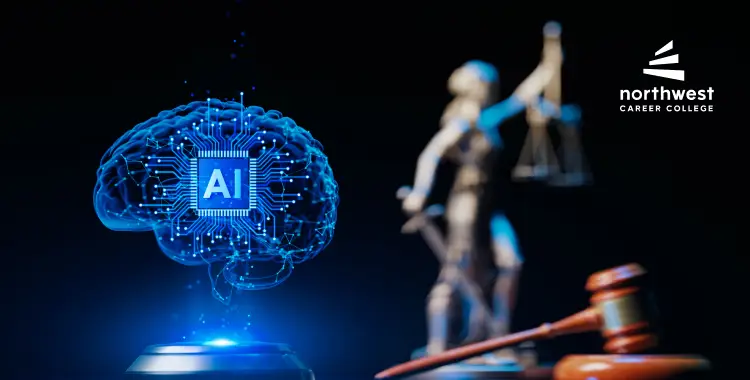Top 5 Law Research Databases All Legal Assistants Should Master
- October 31, 2025
- 1.2k views
- 5 min read
Ask any seasoned legal professional what keeps a case moving forward, and they’ll likely tell you the same thing: strong, accurate research. Behind every persuasive argument, airtight contract, or successful motion is a legal assistant who knows exactly where to look and how to find the correct information.
Legal research isn’t just another task list item—it’s a foundational skill that sets exceptional legal assistants apart. Whether helping an attorney prepare for court or digging into case law to support a client’s claim, your ability to navigate complex databases and interpret legal sources directly affects the firm’s success.
But with so many tools, which ones should you use?
In this blog, we’ll break down the Top 5 law research databases every legal assistant should master—tools that will make your job easier and give you a serious edge in the legal world.

Table of Contents
1. Westlaw
Westlaw is among the largest and most authoritative legal research platforms available. It provides access to law cases, legislation, articles, and more. The great news? It’s designed for ease of searching. You can easily search cases by subject matter, date, or court. Westlaw is used daily by lawyers and legal assistants nationwide. Most top law firms nationwide use Westlaw for assistance in cases.
2. Lexis
Another heavy hitter you’ll hear about often is LexisNexis. Like Westlaw, it has a vast database of court cases, legislation, and legal news. Some people prefer LexisNexis a bit more for conducting background checks or getting information on a company. Being familiar with LexisNexis and Westlaw makes you a true asset for any law firm. Some law firms even use both on a case-by-case basis!
3. Fastcase
Fastcase is a legal database that small- to medium-sized law firms adore. It’s a full-featured power database that costs less than Westlaw or LexisNexis. Even state bar associations provide free access to Fastcase for their members.
Fastcase emphasizes providing instant access to cases and statutes. It also includes simple-to-understand charts and maps to help you understand the content you’re searching for.
4. Bloomberg Law
Of course, Bloomberg is famous for its business news, but it also has an excellent legal research product called Bloomberg Law. This product is particularly significant for money, business, or finance cases.
Whether you aspire to work in a large corporation’s legal department or do something with company law, Bloomberg Law should be on your radar.
5. Casetext
Casetext is a newer tool that is rising rapidly. It incorporates artificial intelligence (AI) to assist you in locating cases comparable to the one you are working on. It’s extremely easy to use and is usually less expensive than traditional databases.
Tips for Mastering Legal Research Databases
You can’t master legal research databases overnight, but it is possible to hone your skills and familiarize yourself with the tools by acquiring the proper habits and mindset. The following three tips will help you develop the confidence and efficiency you need to become adept at using these valuable tools:
1. Practice Regularly with Search Filters and Keywords
Pretend that legal research is like being at a vast library—all the information is there, but it’ll be much quicker to find what you want if you know how to isolate it.
Many law databases have sophisticated search filters that allow sorting by jurisdiction, court level, date, or legal issue type. Mastering their use early on will save you hours of frustration.
No less valuable is the skill of phrasing your searches.
Vague or conversational questions are not well-received by legal databases. Instead, become knowledgeable with Boolean operators (such as AND, OR, and NOT) and other keyword methods for achieving pinpoint-specific results. The more you use them, the faster you’ll be able to call up the specific cases, statutes, or secondary sources your lawyer requires.
2. Take Advantage of Training Resources or Certifications
You don’t need to do it all alone. Many leading legal research sites, such as Westlaw, Lexis+, and Bloomberg Law, include free tutorials, step-by-step guides, and even certifications for legal professionals. These are not filler materials. They’re helpful tips on how to use the platform effectively and get the most out of its tools.
3. Stay Updated on New Features and Tools Each Platform Offers
Legal research tools are ever-changing. New releases could contain innovative AI technology, sophisticated citation tools, or expanded integration with judicial dockets and legal forms. Being on top of those changes could give you a serious competitive advantage, particularly when your team requires a quicker, more innovative solution to discover or categorize information.
To stay updated on the latest features, subscribe to the company’s newsletters or connect with them on professional networks such as LinkedIn. A few even have “What’s New” pop-ups or email notifications when new features become available.
Conclusion
Legal research is more than just a task—it’s a core skill every successful legal assistant needs. Mastering the databases can help you work faster. You will be able to think critically and support the lawyers with confidence.
Our Legal Assistant Program doesn’t just teach you what to do—we show you how to do it, with hands-on training in the same databases used by top law firms nationwide. You’ll graduate with practical research skills, professional confidence, and a clear path into the legal field.
Ready to take the first step toward a rewarding legal career?
👉 Enroll now and start building the skills law firms seek.





